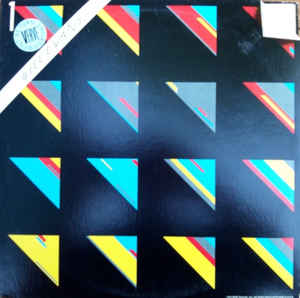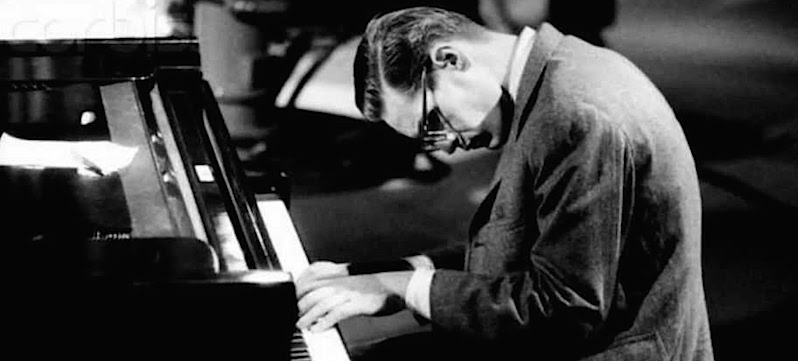Various forms of the records-that-changed-my-life meme have been making the rounds lately, so I came up with my own version, which I call “The Twenty-Five Record Albums That Changed My Life.” I’m writing about one of these albums each weekday in the rough order in which I first heard them.

I don’t know what there is left to say about Bill Evans that hasn’t already been well said elsewhere. I (and many others) consider him to be the greatest jazz pianist in the world today. He has weathered decades, changes in the world’s musical tastes, and tragic personal problems. He has the strength of a warrior and the soul of a poet. He remains one of the simple but intellectual masters of modern piano interpretation. On every one of Bill’s albums in my collection (I’ve lost count of the number) I think I can feel his heart.
I wanted to run right out and buy a copy of Alone after reading that effusive paragraph, but such a thing wasn’t yet possible in Smalltown, U.S.A., in 1970, so I filed Reed’s review away in the back of my mind, went about my business, and—not surprisingly—forgot all about Evans. Then, four years later, Verve put out a two-disc greatest-hits collection of his recordings called Return Engagement that contained, among other things, a couple of tracks from Alone. I was by that time a regular mail-order customer of Chicago’s Rose Records, so I ordered a copy, more out of curiosity than anything else.
As soon as Return Engagement arrived, I put on the first track, Evans’ 1963 recording of Alex North’s “Love Theme from Spartacus.” To say that I was stunned by what came floating out of my speakers is an understatement. Even though the middle part of “Love Theme from Spartacus” is a kind of jazz waltz, the opening and closing sections sounded nothing like any kind of jazz I’d ever heard. At times they hinted at Debussy or Ravel, but there was nothing derivative about them: they were, rather, the musical equivalent of a cloudy night sky filled with fireflies and brightly shining stars. I was so bowled over that it didn’t hit me at first that what I was hearing was one pianist playing three separate tracks, two of them overdubbed. All I heard was the music, and as I listened to it, I thought: This is the way I’d like to play piano.

Many jazz musicians resemble their music. Who could have looked more worldly-wise than Duke Ellington, or wittier than Paul Desmond? But sometimes a musician embodies a contradiction, and then you can read it off his face, just as you can see a fault line snaking through a tranquil landscape. Such was the case with Bill Evans. His shining tone and cloudy pastel harmonies transformed such innocuous pop songs as “Young and Foolish” and “The Boy Next Door” into fleeting visions of infinite grace. Yet the bespectacled, cadaverous ruin who sat hunched over the keyboard like a broken gooseneck lamp seemed at first glance incapable of such Debussyan subtlety; something, one felt sure, must have gone terribly wrong for a man who played like that to have looked like that.
I never met Evans, and I’m glad I didn’t. I think he would have been far too painfully sad a person to want to know. But I’ve spent much of the past half-century listening closely to his music, including “Love Theme from Spartacus,” time enough and more to know that it is, at least for me, inexhaustibly beautiful—and that it’s still the way I’d like to play piano, if I could.
(To be continued)
* * *
Bill Evans plays Alex North’s “Love Theme from Spartacus” on Conversations With Myself, released in 1963:
The Bill Evans Trio plays “My Foolish Heart” on the BBC in 1965. Chuck Israels is the bassist, Larry Bunker the drummer:
Bill Evans is interviewed by Chris Albertson in 1970:
* * *
To read about album #1, go here.
To read about album #2, go here.
To read about album #3, go here.
To read about album #4, go here.
To read about album #5, go here.
To read about album #6, go here.
To read about album #7, go here.
To read about album #8, go here.
To read about album #9, go here.
To read about album #10, go here.
To read about album #11, go here.
To read about album #12, go here.
To read about album #13, go here.
To read about album #14, go here.
To read about album #15, go here.
To read about album #16, go here.
To read about album #17, go here.
To read about album #18, go here.
To read about album #19, go here.
To read about album #20, go here.
.To read about album #21, go here.
.To read about album #22, go here.
